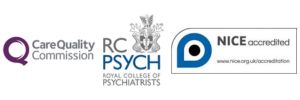There is often an assumption that because someone is really good at a sport, they must have both a healthy body and healthy mind. Success and fortune don’t make you immune to depression, it can happen to anyone at any time.
In fact, recent studies have shown that elite sportspeople have higher levels of depression than the general population. Biological components play a big role, and biological reasons for depression can include the genetic components that make-up the individual.
However, there are a number of other factors that many athletes have to contend with, linked with the biological predisposition, that highlight the importance of proper support structures within clubs and organisations to help identify and treat mental health conditions.
Contributing factors include:
- Injuries
- Overtraining
- Sleep disturbance
- Pressure and stress
- Alcohol
- Substance abuse
A record number of footballers are seeking mental health support, according to the Professional Footballers’ Association (PFA). PFA director of player welfare Michael Bennett expects the organisation to help “double or treble” the number of players in 2020 than it did in 2019. He says the increase is “a good thing” – as it shows increased trust in the PFA – rather than a growing problem.
Signs and Symptoms of Depression
- Ongoing sad, anxious, or empty feelings
- Feeling hopeless
- Feeling guilty, worthless, or helpless
- Feeling irritable or restless
- Loss of interest in activities or hobbies once enjoyable
- Feeling tired all the time
- Difficulty concentrating, remembering details, or making decisions
- Difficulty falling asleep or staying asleep, a condition called insomnia, or sleeping all the time
- Overeating or loss of appetite
- Thoughts of death and suicide or suicide attempts
- Ongoing aches and pains, headaches, cramps, or digestive problems that do not ease with treatment.
Why should athletes choose rTMS to treat depression?
Repetitive Transcranial Magnetic Stimulation treatment is a highly successful non-invasive, medication-free procedure for all types of depression and anxiety.
Senior Consultant Psychiatrist at Tranquil TMS, Dr Babu Nayar, explains how rTMS treats the condition: “rTMS works by specifically targeting an area of the brain found to be underperforming in patients with depression.
“The focussed nature of the treatment means that the symptoms improve significantly, without causing any undue side-effects and people are able to return to their normal routine quicker than conventional treatment options such as antidepressant medications.”
rTMS is covered by a number of insurance companies and is NICE and FDA approved.
For more information or to book a free telephone consultation with one of our specialists, please call 0800 193 0914 or visit https://www.tranquiltms.co.uk/contact-us/


